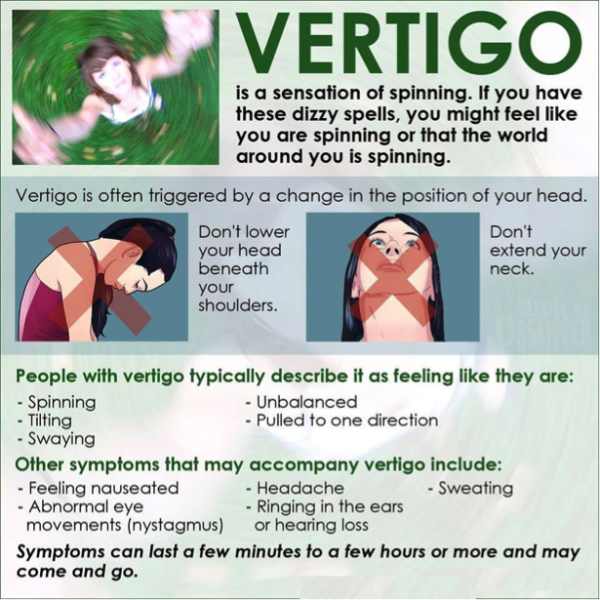
A vestibular migraine is controlled with diet and lifestyle modifications. Along with the spinning sensation associated with headaches, motion sickness and hypersensitivity to light and sound prominently show up in the patient. A severe headache coupled with dizziness indicates a vestibular migraine. But in a vestibular migraine, the patient has dizziness which may be associated with headaches. The most common presentation of a migraine is headaches. Vestibular Migraineġ0% of the population is affected by a migraine, most of them are women. Otolith stimulation through vestibular rehabilitation therapy works well in treating the disorder. But now Otolith disorders can be diagnosed with the Subjective Visual Vertical test and VEMP. Until recently, there was no precise method to check the impairment of otolith organs. Otolithic Disordersĭamage to the otolith organs (utricle and saccule) cause disequilibrium of the body and affects visual stability. Vestibular Rehabilitation should be started at the earliest to help attain rapid recovery. The dizziness symptom is accompanied by blurred vision, nausea, vomiting and difficulty in focusing during head movement.

The inflammation disturbs the balance function and causes dizziness. Vestibular Neuritis is caused by a viral infection leading to inflammation of the vestibular nerve. Meniere’s disease usually affects one ear, but it may be bilateral in 15% of cases. If not treated timely, Meniere’s disease can lead to a progressive hearing loss. Meniere’s disease is caused by increased pressure of the inner ear fluid. It is a disorder of the inner ear, which is characterised by episodes of hearing loss and fullness in one ear, tinnitus and vertigo.
:max_bytes(150000):strip_icc()/six-common-causes-of-sudden-vertigo-2488848-FINAL-1d8aaad5c7c94605a0405772c04da167.png)
A correct diagnosis will enable the doctor to offer the right vertigo treatment, which is the only way to give the patient lasting benefit. A neuro-otological workup alone will help to find out if a vertigo patient is suffering from disorders like BPPV, Meniere’s Disease, Vestibular Neuritis, Labyrinthitis, Acoustic Neuroma, Otolith Dysfunction, Vestibular Migraine, Central Vestibulopathy or psychogenic disorders.ĭifferent disorders causing vertigo have different presentations and require diverse treatment protocols. Proper diagnosis of what is causing vertigo/dizziness is possible only when the doctor makes a systematic evaluation. Therefore, suppressing the symptom is not the solution. It is a fact that 20-40% people are affected by dizziness at some point in time in their life 15% people have dizziness 5% have vertigo in any given year 2.5% of all primary care visitors report dizziness, and 2-3% of emergency visits in the developed world is for vertigo.īut it must be noted that vertigo is not a disease.


 0 kommentar(er)
0 kommentar(er)
